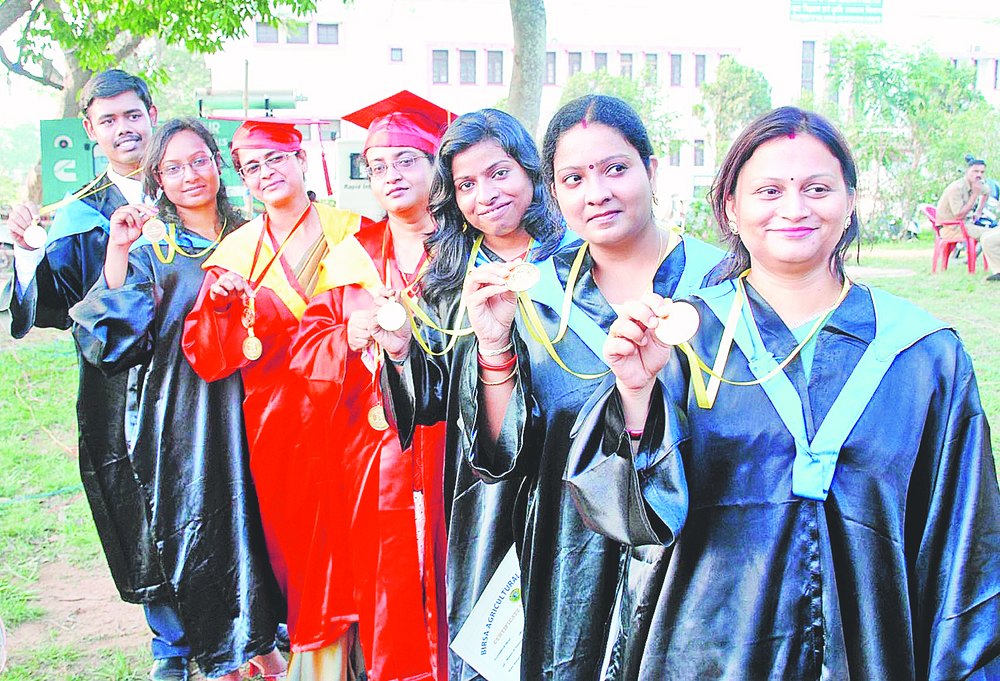

Ranchi, May 19: A.P.J. Abdul Kalam, a man who universally needs no introduction, today urged Jharkhand and its farm graduates to draw up an exhaustive road map for agricultural productivity and lend hand to the country's second green revolution.
"The biggest problems in boosting field yield are fragmented land holdings, manual farming methods, increased dependence on rainfall, low irrigation coverage, lack of storage facilities and absence of proper marketing outlets. To overcome these, the co-operative movement needs to be strengthened in the first instance," the former Indian President said in his keynote address at the convocation of Birsa Agricultural University (BAU) in Kanke, Ranchi.
BAU hosted its fifth convocation since its inception in 1981, when Ranchi Agriculture College, Ranchi Veterinary College and College of Forestry were brought under one roof. The last convocation was held on February 20, 2010.
As many as 657 students were awarded their BSc, M.Sc and PhD degrees today, said BAU vice chancellor George John. Two PhD students - Supriya Singh of horticulture (2009-12) and Tajwar Izhar of plant breeding and genetics (2008-11) - were awarded the chancellor's gold medals for scoring the highest grade point average. Gold medals were also won by 27 others from various disciplines and batches.
According to India's missile man, only a strong co-operative movement can help bring together fragmented land holdings and their many owners onto one platform and lay the foundation for mechanised farming in the state.
The next step, Kalam said, was assessing the health of soil, understanding nutrition deficiency and taking steps to control the same, optimum use of fertilisers, water conservation and rainwater harvesting to reduce dependence on monsoon, besides a quick switchover to multi-crop techniques.
Jharkhand, he observed, needs to pitch in with skill development programmes, introduction of scientific farming techniques and ensuring knowledge sharing with farmers. "There is also an urgent need to draw up a complete road map for organic farming and introduction of organic fertilisers in the state," the Bharat Ratna awardee insisted.
Kalam added that BAU could play a pivotal role in improving farm productivity in the state by pioneering research, inventing weather-resistant seeds and ensuring a quick transfer of latest techniques to farmers.
Chief minister Raghubar Das, who was also present on the occasion along with governor Droupadi Murmu and agriculture minister Randhir Singh, conceded that in the past 15 years, development in the field of agriculture in Jharkhand had been "below expectations".
Additional problems, he said, were caused by increased incidence of soil acidity and disturbed rainfall pattern, besides complete reliance on manual methods of farming.
"The government has drawn up a road map to increase farm production. With effect from May 28, agriculture officials and BAU scientists will launch soil testing programmes across the state, issue soil health cards to farmers and accordingly advise them on optimal use of fertilisers," Das added.











